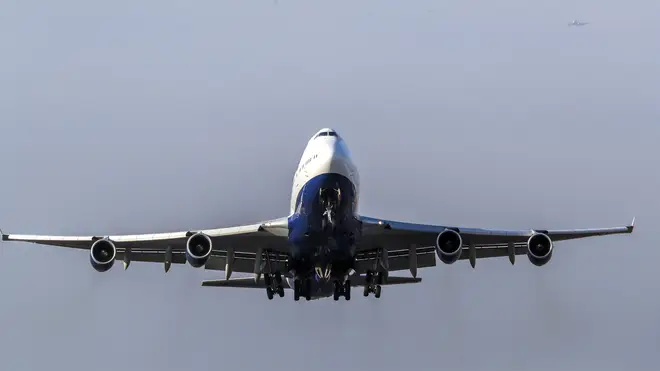
Paul Brand 7am - 10am
22 July 2020, 08:00

Some of the world's largest aviation companies, including the owner of British Airways, have written to both US and European leaders urging them to swiftly restore transatlantic air travel.
Aviation has been one of the industries hardest hit by the Covid-19 shutdown, with many companies facing heavy job losses and restructuring to survive.
Now, four major airline operators have urged US Vice-President Mike Pence and EU Commissioner for Home Affairs Ylva Johansson to find ways to reopen mass commercial travel between the two unions.
The letter was also sent to the UK's aviation minister Kelly Tolhurst.
Signed by executives from United, Lufthansa Group, American Airlines and International Airlines Group (AIG), it proposed setting up a joint EU-US Covid-19 testing programme to build passenger confidence.
It stated that a joint testing programme could allow services to resume without quarantine or other entry restrictions.

What it's like to fly from the UK in July
It said pre-existing guidance for Covid-safe air travel could also help form a basis from which to restart transatlantic travel safely.
The letter finished: "Nobody will benefit from a prolonged closure of this most indispensable corridor for global aviation."
On Friday, British Airways, which is owned by AIG, announced it would be retiring its entire 31-strong fleet of Boeing 747s as it prepares for "a very different future".
Aviation consultant John Strickland said that the demise of the 747 was understandable.
He said: "The US market doesn't really exist at the moment. That's where BA substantially deploys its 747 fleet.
"Without the US peak summer programme operating and with winter being leaner, it was already looking like this fleet was going to be on the ground for quite some time."

Mum and daughter from Spain nervous about flight and returning to the UK
It follows the news that UK airports will suffer a £4 billion hit from lost revenue this year due to the coronavirus pandemic, an industry body has warned.
The Airport Operators Association (AOA) said nearly £2 billion was lost in the four-month period between March and June alone, which is equivalent to around £15 million each day.
It anticipates that the finances of its members will continue to suffer throughout the rest of the year, putting up to 110,000 jobs at risk at airports and their supply chains.
Passenger numbers have fallen by as much as 99% during the crisis, with demand for travel collapsing and restrictions being introduced by governments around the world.
Heathrow said just 350,000 people travelled through the airport last month, down 95% on June 2019.
ACI Europe, which represents European airports, recently predicted that passenger numbers will not recover until 2024.
The AOA and airport chief executives have written to Prime Minister Boris Johnson calling on him to take urgent action to help the aviation industry.
They noted that the aviation industry has been "denied the kind of targeted support afforded to other sectors".

Wizz Air passengers arriving at Luton Airport
The AOA wants relief from business rates for 2020/21 in line with support given to the hospitality and retail sectors, help with meeting employment costs when the furlough scheme ends, and the suspension of Air Passenger Duty for at least six months to stimulate demand.
AOA chief executive Karen Dee said: "These projections reinforce the significant challenges that UK airports continue to face after the worst four months in the history of commercial aviation.
"Whilst we have seen passengers begin to return, passenger numbers are not expected to reach pre-Covid levels for a considerable period and airports will continue to face challenges and pressures unimaginable six months ago.
"Airports have done everything in their power to weather the storm and have done so without the specific Government support afforded to other sectors.
"That our airports lost close to £2 billion during the lockdown should serve as a wake-up call to Government and lead them to finally grasp the severity of the challenge and threat that the pandemic has posed and continues to pose to the sector.
"We cannot have a full national economic recovery without a thriving aviation sector."